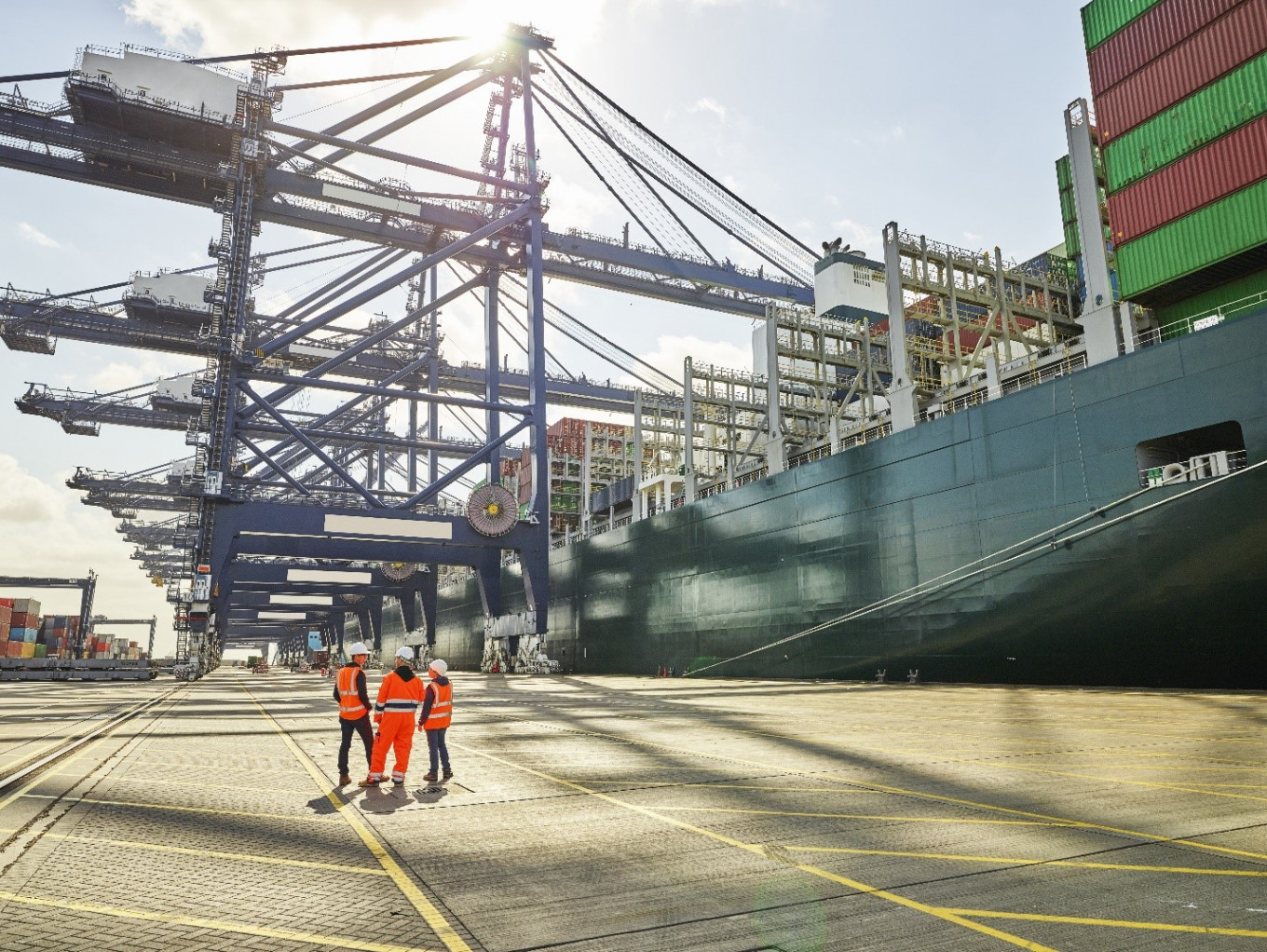Popular Reads
Top Results
Can't find what you're looking for?
View all search resultsPopular Reads
Top Results
Can't find what you're looking for?
View all search resultsMaximizing business growth with working capital loans
Change text size
Gift Premium Articles
to Anyone
A
sia’s trade environment is shifting rapidly, influenced by trends such as nearshoring, digital transformation and geopolitical realignments. With intraregional trade now making up 57 percent of Asia’s total trade, up from 54 percent in 2000, the region is more interconnected than ever.
A key factor shaping this transformation is rising intraregional trade as China remains ASEAN’s top trading partner, accounting for 20 percent of total trade in 2023, while new trade connector countries like Vietnam and Indonesia play a strategic role in global supply chains. On the technology side, fintech innovations are reshaping financial services and trade financing.
As markets evolve, businesses need to stay agile. Access to sufficient working capital is essential for seizing opportunities while managing risks.
A brief look at Indonesia’s trade and business landscape
Indonesia, as Southeast Asia’s largest economy, is a key player in the regional trade ecosystem. With a growing domestic market, a population of over 270 million and rising middle-class consumption, Indonesian businesses must manage cash flow efficiently to meet local demand. In addition, Indonesia is strengthening its position as a manufacturing hub, particularly in sectors like electronics, automotive and textiles. Exporters need access to working capital to fulfill large orders and manage supply chain disruptions. Meanwhile, the rapid adoption of digital banking and payment systems are changing how businesses manage transactions and cash flow.
Why working capital loans matter
In an uncertain trade environment, the market can move fast and shifts can arise unexpectedly. Having the right support in place can help mitigate the downside risks of these developments.
Working capital loans are designed to help companies cover temporary or day-to-day expenses all while staying primed for growth. They can take various forms, including the following:
Trade loans provide short-term financing options specifically designed to support importers and exporters in managing cash flow during the trading cycle, allowing businesses to pay suppliers while awaiting payment from buyers.
Buyer loans are financial products that provide funding to importers, enabling them to purchase goods by covering the costs until they can sell the products and receive payment from their customers.
Seller loans provide financing for exporters, allowing them to produce and ship goods by providing the necessary capital until they receive payment from the importing buyer.
Business overdraft facilities allow companies to withdraw more money than is available in their accounts, providing immediate access to funds for short-term operational needs while incurring interest only on the overdrawn amount.
Business credit cards provide a revolving line of credit for companies, enabling them to make purchases and manage expenses while offering rewards and benefits for business-related spending.
Revolving loan facilities allow businesses to borrow up to a certain limit, repay the borrowed amount and then borrow again as needed, providing flexibility in managing cash flow and operational expenses.
Using working capital loans strategically
Working capital loans can significantly enhance a business's financial stability and operational efficiency, making it easier to manage day-to-day expenses. Unlike general working capital, which encompasses all assets and liabilities, trade working capital focuses specifically on the funds tied to daily operations.
For example, one of the primary benefits is the minimization of unplanned overdrafts, which can be costly and disruptive to operations. By having access to a working capital loan, companies can better manage their cash flow, ensuring they have the necessary funds to cover expenses even during periods of fluctuating income or unexpected costs.
Another significant advantage of working capital loans is the ability for businesses to access funds when they are most needed. This ensures smoother financial operations, as companies can quickly respond to opportunities in the market without being constrained by cash shortages. The flexibility of these loans allows businesses to maintain their momentum which might be otherwise difficult due to a lack of immediate funds.
On top of this, working capital loans provide businesses with the ability to cover short-term or daily expenses through a flexible draw, repay and redraw system within a given facility’s limits. The revolving nature of the loan allows companies to manage their cash flow more efficiently, using funds as needed and repaying when cash is available, all of which are critical for optimizing financial resources.
As businesses assess their working capital needs, they should think about how best to put these loans to work.
Assessing financial needs: Businesses should take into account factors such as cash flow cycles and seasonal variations in the business. This assessment helps in determining the appropriate loan amount and type, ensuring that the financing aligns with the company's requirements at a given time.
Choosing the right loan: Companies should carefully consider their needs and select a loan product that offers the most suitable terms and flexibility.
Using funds strategically: Businesses may prioritize expenses that will have the most significant impact on operational efficiency and growth potential. This might include investing in inventory, upgrading equipment or expanding into new markets, depending on the priorities of the moment.
The indispensable role of innovation
The need for speed in trade has given rise to important innovations in working capital financing. For our part, HSBC offers a variety of working capital loan solutions to help companies operate smoothly and plan their next steps. These loans provide quick access to funds, tailored financing options and expert support.
One of the first and most important steps for businesses is to consider how they apply for loans. The key is speed and flexibility, and that is exactly what HSBCnet offers through its digital tools. Those tools significantly reduce the paperwork involved in securing financing. A digital-led approach also simplifies the application process while at the same time giving customers total visibility of their finances anytime, anywhere.
Businesses can also use digital tools such as loan calculators to estimate their borrowing capacity and repayment plans. This can be a helpful aid in staying on top of financing needs and knowing what sort of loan will work best in a given situation.
Taking this a step further, HSBC TradePay is a digital trade finance solution that enables businesses to unlock working capital instantly. It is fully integrated within HSBCnet, empowering companies to make just-in-time payments to suppliers as well as draw down loans in under a minute, thereby facilitating the alignment of cash outflows with production schedules and meeting the demands of new orders without delay.
Through HSBC TradePay, businesses can solidify their relationships with suppliers, keep their borrowing costs under control and do business with confidence.
We take pride in providing fast approvals for working capital loans. Businesses don’t have the luxury of waiting for liquidity to pursue new opportunities or respond to issues that arise, so we have innovated to ensure there is no lag in responsiveness.
It’s all about the right banking partner
Success in today’s trade landscape requires a reliable banking partner who not only provides needed financial support, but who also delivers local market expertise and advice for navigating shifting regulatory environments.
Local expertise: A banking partner with a strong local presence across markets can provide needed insights into local markets, cultures and consumer behaviors. This local knowledge is essential for businesses looking to expand or operate in Asia’s diversity of markets, which can vary significantly. On top of this, having an extensive global network can help businesses meet their cross-border and even cross-regional needs.
Regulatory guidance: The regulatory landscape in Asia is nuanced, with each country having its own set of rules and compliance requirements. A banking partner who can assist businesses in understanding and adhering to these regulations will minimize the risks associated with non-compliance. This is particularly important as trade finance often involves navigating different currency regimes and licensing requirements across jurisdictions.
Financial support: Access to trade finance solutions at the cutting edge of innovation is and will continue to be a vital element for businesses engaged in cross-border trade. A banking partner such as HSBC can offer all the required trade solutions to ensure businesses have the working capital they need when they need it.
Financing the future of trade
Business today happens at pace. Keeping a company’s day-to-day operations running smoothly requires sufficient funds. From expanding a business to investing in new capabilities, there are many reasons why access to working capital is a business necessity.
This is because strains can come from a variety of sources, both internal and external, including everything from rapid growth putting pressure on resources to working capital being tied up in receivables to fluctuating economic conditions such as inflation and interest rates.
As stated previously, working capital loans are a ready solution to meeting ongoing funding requirements in a changing business environment, but they are also more than that. Today, companies need financial partners who are willing to collaborate rather than merely service them.
In a market that moves as fast as today’s, such collaboration is nothing short of a competitive advantage because success almost always goes to those who are the most prepared.
Source: HSBC











